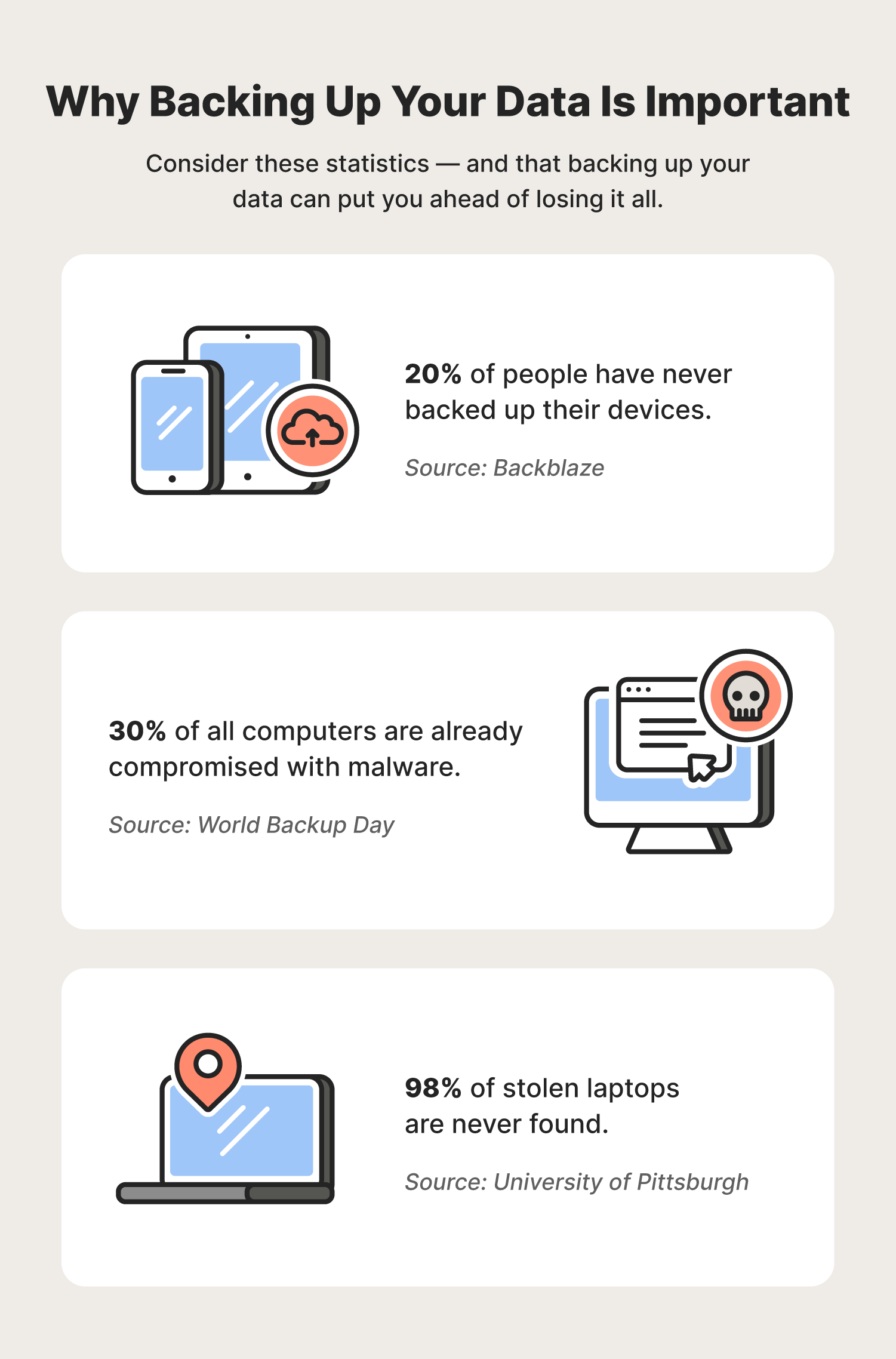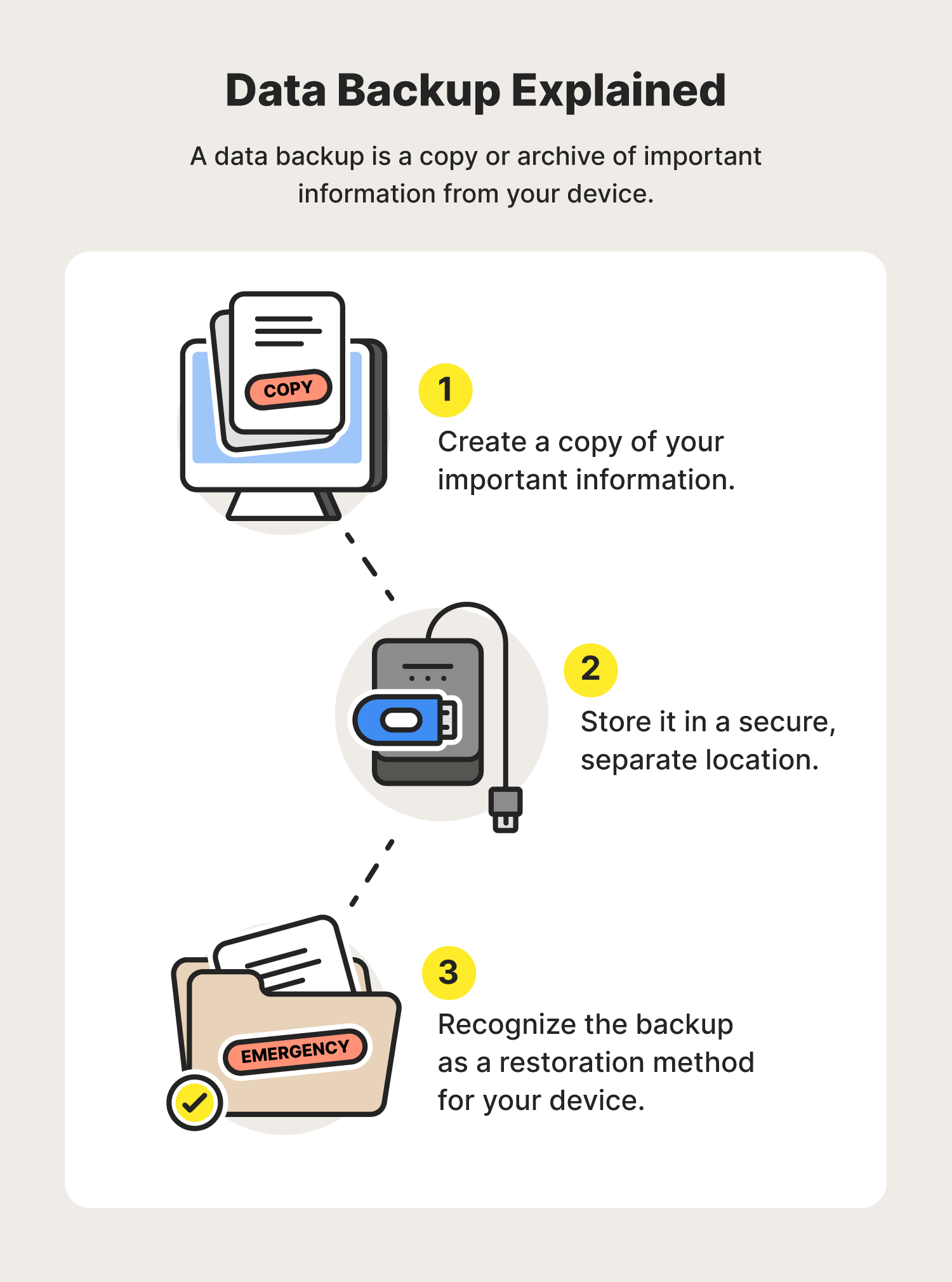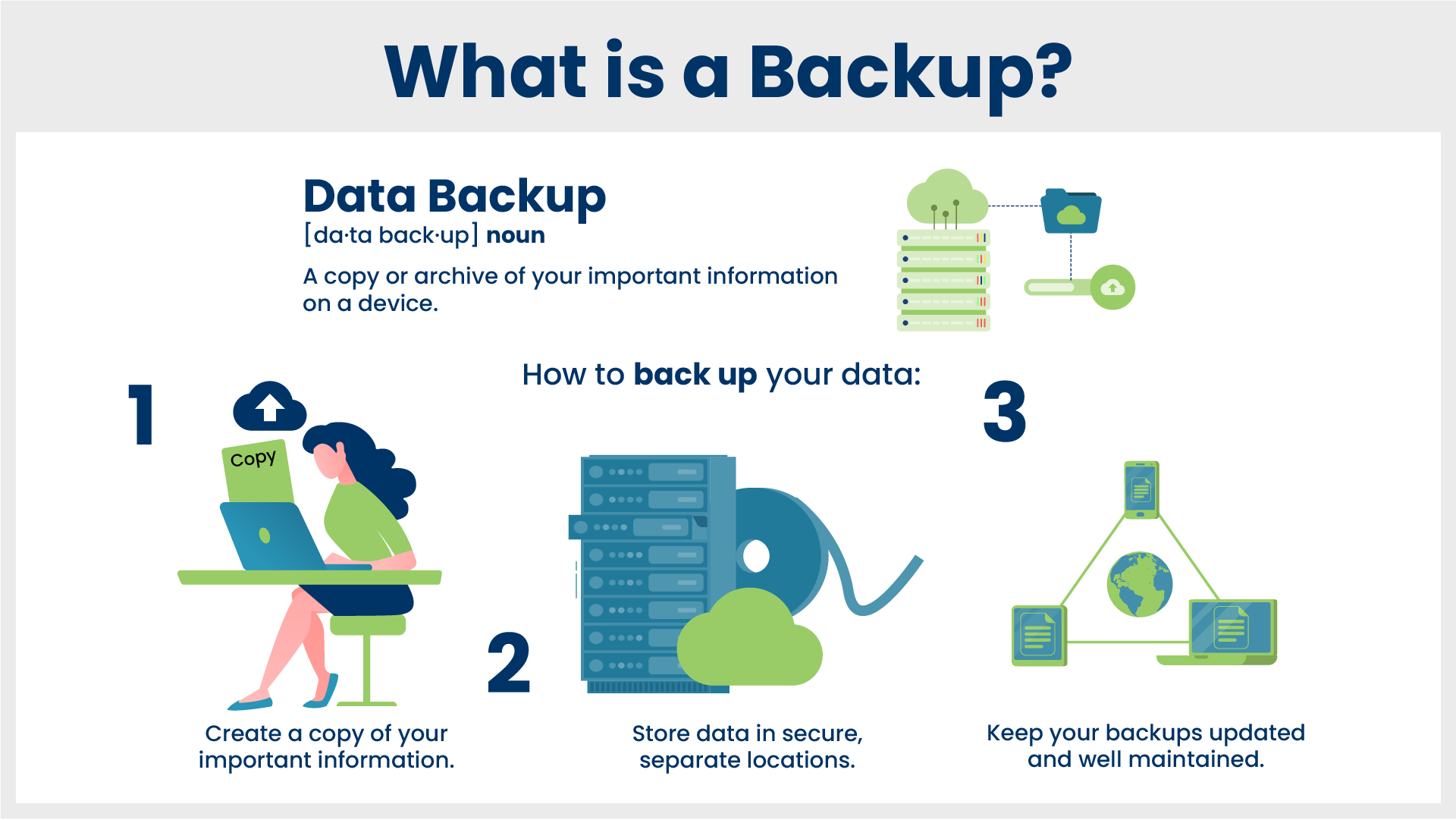Why is Data Backup and Recovery important?
Preventing data loss
Data loss can occur in several ways, such as accidental deletion, software corruption, or system crashes. By implementing a reliable backup and recovery system, you can ensure that your important files and data are protected from such incidents. Regularly backing up your data provides a safety net, allowing you to restore lost or corrupted files quickly and efficiently.
Protecting against hardware failures
Hardware failures are unpredictable and can lead to permanent data loss. With a data backup and recovery solution in place, you can safeguard your files and data in the event of a hardware failure. By regularly creating backups and storing them in separate storage devices or cloud platforms, you minimize the risk of losing your important information due to faulty hardware.
Guarding against natural disasters
Natural disasters like floods, fires, and earthquakes can destroy physical storage devices, resulting in irretrievable data loss. However, by using offsite backup solutions or cloud storage, your valuable files and data can be protected and easily recovered, even if your primary location is affected by a natural disaster.
Defending against cyber attacks
Cyber attacks, such as ransomware or malware infections, pose a significant threat to your data security. Data backup and recovery play a crucial role in defending against these attacks. By having up-to-date backups of your important files and data, you can restore your systems to a pre-attack state, minimizing the impact and potential loss caused by cybercriminals.
Implementing a robust data backup and recovery system protects your important files and data from various risks, including data loss, hardware failures, natural disasters, and cyber attacks. By regularly backing up your data and storing it securely, you can ensure that your information remains safe and can be easily restored when needed.

This image is property of us.norton.com.
## What is Data Backup?
Definition of Data Backup
Data backup refers to the process of creating copies of your important files and data and storing them in a secure location, separate from your main storage devices. It acts as a safety net that ensures the protection and availability of your files, even in the event of unexpected data loss or system failures.
Types of Data Backup
There are several methods of data backup that you can employ, depending on your specific needs. These include:
- Full Backup: This type of backup involves copying all of your files and data onto a separate storage device.
- Incremental Backup: With incremental backups, only the changes made since the last backup are saved, reducing storage requirements.
- Differential Backup: Differential backups back up all changed data since the last full backup, making it faster to restore than incremental backups.
Importance of regular backups
Regular backups are crucial for safeguarding your important files and data. They act as a safety net, protecting your information from various threats such as hardware failures, accidental deletion, malware attacks, and even natural disasters. By regularly backing up your data, you ensure that you can easily recover and restore your files, thereby minimizing downtime, reducing the risk of data loss, and giving you peace of mind.
Data backup and recovery are essential components of any reliable data protection strategy. By understanding and implementing the different backup methods available, you can ensure the safety and availability of your important files and data whenever you need them.

This image is property of dtc1.com.
## How does Data Backup and Recovery protect your important files and data?
Data Backup and Recovery is an essential practice that safeguards your important files and data from unexpected events or system failures. By creating a backup of your files and data, you ensure their availability and reliability even in the face of unforeseen circumstances. But how exactly does it work?
What is Data Recovery?
Definition of Data Recovery
Data recovery refers to the process of retrieving and restoring lost, damaged, or corrupted data from storage devices such as hard drives, servers, or cloud services. It involves the use of specialized software or techniques to extract and repair the affected files.
Methods of Data Recovery
There are several methods of data recovery, including software-based recovery, hardware repair, and data reconstruction. Software-based recovery relies on specialized programs that can recover deleted or lost files from storage devices. Hardware repair involves fixing physical issues with the storage devices, such as replacing damaged parts. Data reconstruction, on the other hand, involves retrieving data from fragmented files or incomplete backups.
Challenges in Data Recovery
Data recovery can be challenging due to various factors, such as the complexity of the storage device, the severity of data loss, and the availability of resources. Some challenges include physically damaged storage devices, overwritten data, and encrypted files. Overcoming these challenges requires expertise, technical knowledge, and the use of advanced recovery tools.
Data backup and recovery play a crucial role in protecting your important files and data. By understanding the definition of data recovery, the methods involved, and the challenges faced, you can ensure the safety and availability of your valuable information.

This image is property of us.norton.com.
Data Backup and Recovery is a crucial process in safeguarding your important files and data from any potential loss or damage. By implementing an effective backup and recovery strategy, you can ensure that your data is protected and can be easily restored in case of an unexpected event.
How does Data Backup work?
Data Backup process
Data Backup involves creating copies of your files and data and storing them separately from the original source. This can be done through various methods such as manual backups, external hard drives, cloud storage, or dedicated backup software. The backup process typically involves selecting the files or directories you want to backup, initiating the backup, and allowing the system to create a duplicate copy of your data.
Backup frequency and retention
The frequency of data backups depends on your specific needs and the importance of the data being backed up. It is recommended to schedule regular backups, whether daily, weekly, or monthly, to ensure that your data remains updated. Additionally, establishing a retention policy that determines how long the backup data should be retained is crucial for effective data recovery.
Choosing the right backup solution
There are various backup solutions available, each with its own benefits and limitations. Factors to consider when choosing the right backup solution include data size, ease of use, encryption capabilities, scalability, and cost. It is important to evaluate these factors and select a backup solution that suits your requirements and ensures the safety and security of your important files and data.
By implementing a well-designed Data Backup and Recovery system, you can have peace of mind knowing that your important files and data are protected from unexpected events like hardware failure, natural disasters, or human errors. Regular backups, proper retention policies, and careful evaluation of backup solutions are key to safeguarding your valuable information.
Why is Data Recovery essential?
Data backup and recovery is crucial for protecting your important files and data from loss or damage. Accidental deletion, hardware failures, software crashes, and even natural disasters can lead to catastrophic data loss. Without a reliable backup and recovery system in place, these events can result in severe consequences for individuals and businesses alike.
Restoring lost files
One of the primary functions of data backup and recovery is the ability to restore lost files. Whether you accidentally delete a file or it gets corrupted, having a backup ensures that you can retrieve and restore the data easily. This protects against the frustration and loss of valuable information that can occur in such situations.
Recovering from data corruption
Data corruption can occur due to various reasons, such as malware, power outages, or system crashes. With a robust data backup and recovery solution, you can recover corrupted files and restore them to their original state, minimizing the impact of data loss and ensuring that you can continue working without disruption.
Rebuilding systems after disasters
In the unfortunate event of a natural disaster or a major system failure, data backup and recovery is crucial for rebuilding your systems. Having a comprehensive backup allows you to recover your important files, applications, and system configurations, ensuring that you can quickly resume operations and minimize downtime.
Data backup and recovery is an essential measure to protect your important files and data from various risks, such as accidental deletion, data corruption, and system failures. Implementing a reliable backup and recovery system safeguards your information and provides peace of mind, knowing that you can easily restore your data whenever needed.

This image is property of in.norton.com.
## How does Data Recovery work?
Data Backup and Recovery is an essential process that ensures the protection of your important files and data. In the event of a technical failure, accidental deletion, or a cyber attack, having a secure backup and recovery system enables you to restore your data seamlessly.
Data Recovery process
The Data Recovery process involves retrieving lost, damaged, or corrupted data from various sources such as hard drives, servers, storage devices, or cloud platforms. It typically consists of several stages, including assessment, extraction, repair, and retrieval of the data.
Different recovery techniques
There are different recovery techniques employed based on the specific data loss scenario. These techniques include logical recovery, which involves recovering data from healthy drives using software tools, and physical recovery, which deals with hardware-related issues and requires professional assistance to repair damaged components.
Selecting a suitable recovery method
Choosing the appropriate recovery method depends on factors such as the type of data loss, the importance of the data, and the resources available. It is crucial to consider factors like time, cost, and the level of expertise required to execute the recovery process successfully.
Having a reliable data backup and recovery system in place is imperative to safeguard your valuable files and data. Understanding the data recovery process, different techniques, and selecting the suitable method will give you peace of mind knowing that your data is protected and can be recovered whenever needed.

This image is property of www.goptg.com.
## What are the benefits of Data Backup and Recovery?
Protection against data loss
Data Backup and Recovery is crucial to safeguarding your important files and data. By regularly backing up your data, you can protect it from unforeseen events such as hardware failures, natural disasters, or cyberattacks. In the event of data loss, having a backup ensures that you can easily restore your files and prevent potential damage to your business or personal life.
Reducing downtime
Data loss can result in significant downtime, impacting productivity and causing frustration. With an efficient data backup and recovery system in place, you can quickly recover lost files, minimizing downtime and allowing you to resume normal operations swiftly. This not only saves you time but also avoids potential financial losses and avoids negative impacts on customer satisfaction.
Minimal financial impact
Losing important data can lead to costly consequences. It may require investing in data recovery services, and there’s also a risk of losing valuable information that may be impossible to recreate. By implementing a robust data backup and recovery plan, you can mitigate financial risks associated with data loss and ensure the long-term stability of your business.
Maintaining business continuity
Business continuity relies heavily on the ability to access and recover critical data. Data Backup and Recovery solutions allow you to maintain seamless operations even in the face of unexpected events. By having reliable backups, you can restore important files quickly, minimizing disruptions and ensuring the uninterrupted flow of business activities.
Data Backup and Recovery is essential for protecting your important files and data. By implementing a comprehensive backup strategy, you can minimize the risk of data loss, reduce downtime, mitigate financial impact, and maintain business continuity. Don’t underestimate the importance of data backup and recovery – it’s the key to safeguarding your valuable information.
Tips for Effective Data Backup and Recovery
Automate backup processes
Automating backup processes ensures that your important files and data are regularly backed up without any manual intervention. By setting up automated backups, you can schedule the backup frequency and ensure that your data is consistently being protected.
Perform regular test restores
Performing test restores is essential to verify the effectiveness of your backup and recovery system. By regularly restoring a sample set of files, you can ensure that your backup data is accurate and can be successfully recovered when needed.
Implement redundancy
Implementing redundancy means having multiple copies of your data stored in separate locations. This way, even if one backup source fails or is compromised, you can still retrieve your data from another source. Redundancy greatly minimizes the risk of data loss.
Keep backups off-site
Storing your backups off-site is crucial to safeguarding your data. In the event of a physical disaster, such as a fire or flood, having off-site backups ensures that your important files are still accessible and can be recovered.
Train employees on backup procedures
Employees play a critical role in the data backup and recovery process. Conducting regular training sessions to educate them on backup procedures, such as how to initiate backups and restore files, helps ensure that they understand and follow best practices.
Implementing these tips for effective data backup and recovery will provide you with peace of mind, knowing that your important files and data are protected and can be restored in the event of a data loss incident.
Choosing the right Backup and Recovery solution
Assessing your data storage needs
When it comes to protecting your important files and data, choosing the right backup and recovery solution is crucial. First, you need to assess your data storage needs. Take a closer look at the amount of data you have and the frequency of changes to determine the ideal backup solution for you. Consider factors like storage space, efficiency, and scalability to ensure that your chosen solution can handle your data requirements both now and in the future.
Evaluating backup software options
Next, it’s important to evaluate backup software options. Look for software that offers comprehensive features, such as incremental backups, encryption, and easy file restoration. Consider the user-friendliness and compatibility of the software to ensure a smooth backup process. Take advantage of trial periods or demos to test different software options and select the one that best fits your needs.
Considering cloud backup services
Finally, consider utilizing cloud backup services. Cloud backups offer significant advantages in terms of accessibility, scalability, and security. With cloud backups, your important files and data are stored offsite, protecting them from physical damage or theft. Additionally, you can easily access your files from any device with an internet connection. Prioritize reputable and secure cloud backup providers with robust data encryption and protection measures.
By choosing the right backup and recovery solution, assessing your data storage needs, evaluating backup software options, and considering cloud backup services, you can effectively protect your important files and data, ensuring their availability and integrity.
Conclusion
In conclusion, data backup and recovery are essential for protecting your important files and data. By regularly backing up your files, you can ensure that even if your computer crashes or becomes infected with malware, your data will still be safe. Backing up your data to an external device or cloud storage provides an extra layer of protection against physical damage or theft of your computer.
Data recovery, on the other hand, allows you to retrieve your files in case they get accidentally deleted or corrupted. Having a backup in place will allow you to easily restore your files and continue working without any major disruptions.
Furthermore, data backup and recovery also safeguard your data from natural disasters such as fire or flooding. By storing your data offsite or using cloud-based backup solutions, you can protect your important files from being lost forever.
In today’s digital world where data loss can have devastating consequences, taking proactive measures to back up and recover your important files is paramount. You never know when a mishap or disaster may strike, so don’t delay – start implementing a robust data backup and recovery plan today to keep your files and data secure.

2 replies on “How Does Data Backup And Recovery Protect Your Important Files And Data?”
[…] Data backup also enables swift and efficient data recovery. When unforeseen incidents occur, such as natural disasters or ransomware attacks, having a backup allows you to restore your data and resume normal operations quickly. This ensures minimal disruption to your business and reduces the risk of prolonged downtime. […]
[…] your mobile device with data backup is an essential aspect of protecting your valuable data. It helps prevent data loss, ensures […]